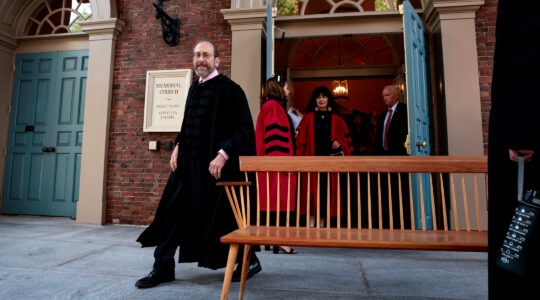NEW YORK (JTA) — Paul Samuelson, the first American Nobel laureate in economics, has died.
Samuelson, who received his Nobel Prize in 1970, died Sunday at his home in Belmont, Mass. He was 94.
The Massachusetts Institute of Technology economist, through his best selling textbook “Economics,” exposed his students to the ideas of British economist John Maynard Keynes.
Keynesian economics promotes the idea of government intervention to stimulate an economy, as opposed to private market economics. Most industrialized countries are employing Keynesian economics in an attempt to break the current downturn.
Samuelson also is credited with turning his area of expertise from a theory-based to action-based discipline, using mathematics to answer questions about cause and effect.
When economists “sit down with a piece of paper to calculate or analyze something, you would have to say that no one was more important in providing the tools they use and the ideas that they employ than Paul Samuelson,” Robert Solow, a fellow Nobel laureate and colleague of Samuelson’s, told The New York Times.
In addition to his role as an academic economist and author, Samuelson consulted for American presidents, members of Congress, the Federal Reserve Board, the United States Treasury, the Bureau of Budget, the President’s Council of Economic Advisers and global leaders.
Samuelson, a native of Gary, Ind., said his family was “made up of upwardly mobile Jewish immigrants from Poland who had prospered considerably in World War I, because Gary was a brand new steel town when my family went there,” The New York Times reported.
JTA has documented Jewish history in real-time for over a century. Keep our journalism strong by joining us in supporting independent, award-winning reporting.





